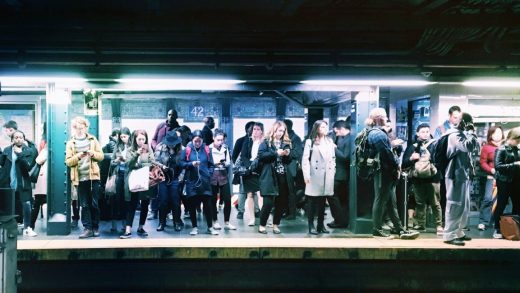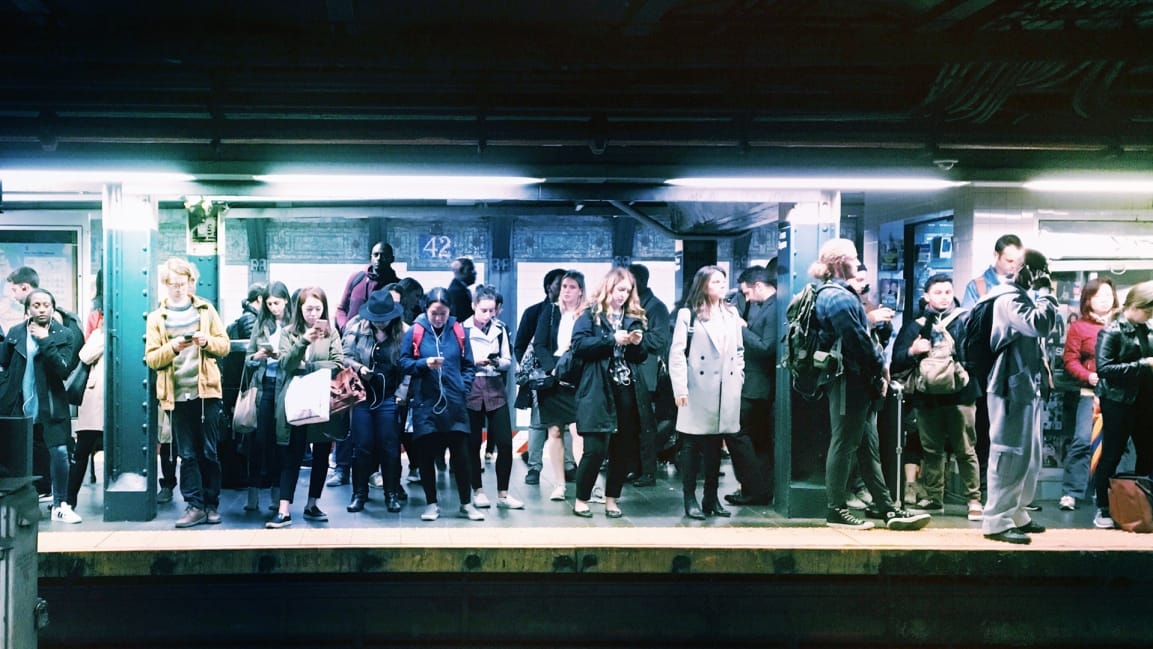Your employees might be leaving because of their terrible commutes
As the unemployment rate continues to drop and the labor market turns into a seller’s game, employees are getting pickier about what they will tolerate. And, increasingly, the rush hour blues are getting the better of them.
A new survey by staffing firm Robert Half found that nearly one-quarter of workers have left a job due to a bad commute. While roughly 4 in 10 workers have said the commuting has gotten better, nearly one-quarter say their trips to and from work have gotten worse. And 60% say their companies have done nothing to help.
Paul McDonald, senior executive director at Robert Half, which is based in Menlo Park, California, says that, as he’s watched the unemployment rate drop over the past five years to its current 3.7% rate, he’s surprised that more people aren’t leaving for a better commute. “It has created so much stress in their lives to have a long commute,” he says.
Helping to shoulder the burden
Some companies have, perhaps spurred by altruism or tax incentives, created suites of commuter benefits. For example, real estate platform Zillow Group, which is headquartered in Seattle, tries to accommodate the various ways people get to work. The company covers the cost of public transit getting to and from work up to a monthly maximum of $300. It also offers a flexible spending account (FSA) for employees who pay for parking, allowing them to save up to $260 per month in pretax dollars. In New York and Cincinnati, the company covers annual memberships to CitiBike and Cincinnati Red Bike bike share services, and many of its offices also offer secure bike storage areas. Sixty percent of the company’s employees take advantage of these benefits.
Adobe, based in San Jose, California, contributes the first $100 to a commuter FSA that can be used for qualified commuting costs and lists other commuter benefits for eight U.S. locations on its website. It also encourages employees to use Scoop, which helps people find opportunities to carpool. The company reimburses employees for emergency taxi rides home, such as when they need to pick up a sick child from school, or when they work late and can’t or prefer not to use public transportation.
“We want to make sure employees have convenient, inexpensive, and sustainable ways to get to and from work. Adobe’s Commuter Program is designed to help employees manage and ease their commutes, while providing commute options, such as carpooling, public transit, and bicycling, that help reduce pollution,” says Scott Ekman, senior director, workplace strategies & solutions at Adobe.
San Francisco healthcare technology company Grand Rounds also offers a commuter FSA. Employees report making the most of commuting time by learning new languages, catching up on phone calls to family and friends, and listening to audio books and podcasts. And flexible work benefits can also help. Doximity, a San Francisco-based social network for doctors, offers an employee stipend that can be used for public transportation, ride shares like Uber and Lyft pools, and parking, but also has a company-wide “Work from Home Wednesdays” policy, allowing employees to skip their commute midweek.
A new challenge
And while companies may be seeking ways to mitigate the impact of a tough commute on turnover, offering such benefits has gotten more complicated. Historically, companies have been able to deduct the cost of fringe benefits like those for commuting, but the Tax and Jobs Act of 2017 eliminated those deductions, says Aaron Schwartz, CPA, a tax consultant with Melville, New York-based Nussbaum, Yates, Berg, Klein & Wolpow. “Technically, by pure reading of the new tax laws, you would not be able to deduct [these expenses],” he says.
However, more guidance may be forthcoming from the Internal Revenue Service, he adds, emphasizing the need for companies to work with a good payroll service or employee benefits provider to ensure that they’re complying with all federal, state, and local commuter benefits laws and requirements. Some cities, such as San Francisco, New York, and Washington, D.C., require companies meeting certain criteria to provide pre-tax commuter benefits.
Even if it gets more expensive, McDonald says that helping employees better manage difficult commutes is part of a bigger retention picture–at least until flying, autonomous cars are the norm. Leaders need to stay in touch with employees and have regular conversations with them to identify stressors and problems before it’s too late, he says. “In the offensive rather than the defensive, it’s better to have that relationship with your worker, knowing what the stress level is, rather than having the resignation happen and find out that [it was because] the commute’s too long,” he says.
(35)



